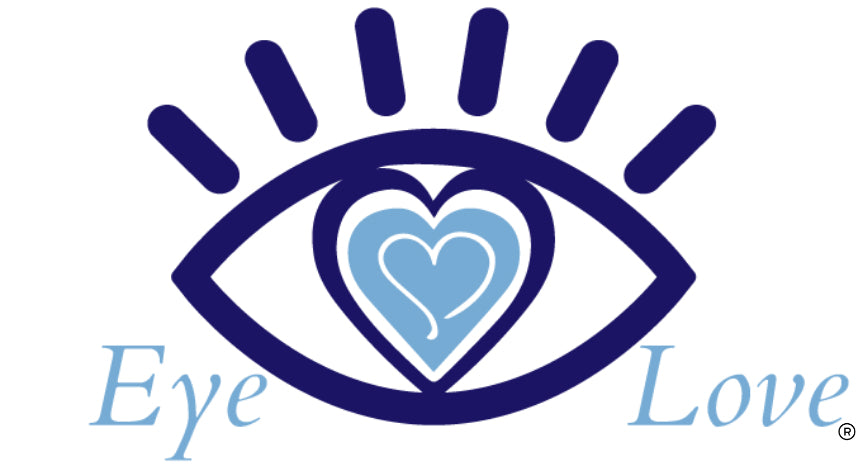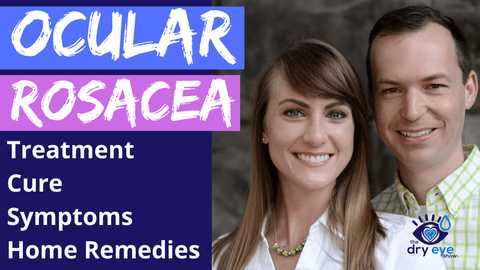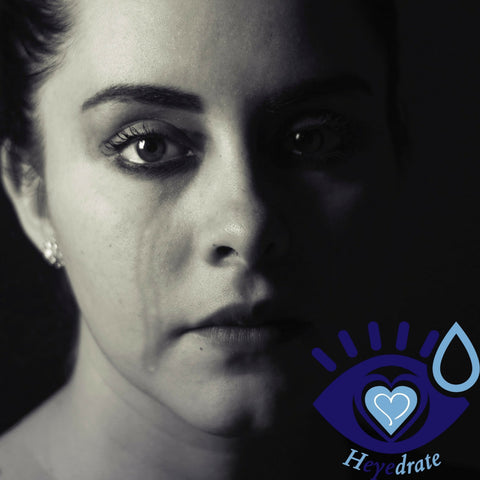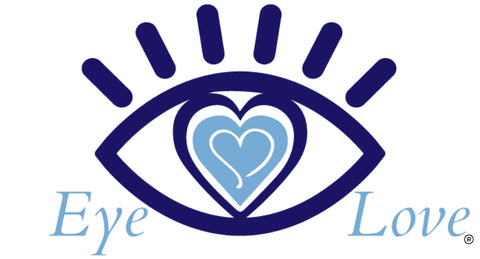Ocular Rosacea Natural Treatment and Cure
Ocular rosacea can be managed by keeping to a strict eye care routine. This routine should be kept up even when the condition seems to clear up. This aids in the prevention of flare-ups. The tips below can also be used to help manage the condition:
- Reduce Inflammation by eating an organic, plant-based alkalizing diet. We recommend eating a green smoothie every morning for breakfast to start. Click here to check out our green smoothie recipes. This is the single most important thing when battling rosacea.
- Wash face and eyelid area with an all natural, tea tree oil based face wash and eyelid cleanser, or use the Heyedrate tea tree soap bar. This will help with soothing the redness and itching as opposed to chemically ridden soaps. Tea tree oil is also great for demodex eyelid mites, which are common in those with ocular rosacea and rosacea in general.
- Ensure eyelids are cleaned twice in a day: a cotton round/ball should be sprayed with a hypochlorous acid eyelid cleanser, such as Heyedrate Lid and Lash Cleanser, and then moved across the eyelid to eradicate oil and debris from the area. Also, spray this hypochlorous acid eyelid cleanser on areas of rosacea on the skin to help alleviate symptoms.
- A warm compress should be applied: blocked glands can be loosened by applying a warm compress eye mask, such as that from Heyedrate, that has been microwaved for 20 seconds. Allow it to sit on closed eyes for 10 to 20 minutes, reheating as needed. However, if your skin is sensitive to this, forego the warm compress altogether.
- Makeup should be avoided: the moment a flare-up happens, makeup should be avoided, as well as any facial products which consist of skin irritants like fragrances. The majority of people discover that the moment the flare-ups subside, they are able to begin using their regular makeup. Also use an all natural makeup remover, not the typical ones in stores that are filled with chemicals.
- Stick to glasses instead of contact lenses: the moment the eyes get irritated, contact lenses should be avoided. Once the episode subsides you can return to wearing contact lenses. Also consider switching to daily disposable contact lenses, which you throw away every day.
- Sun exposure should be limited: sunglasses, sunscreen and a hat should be used to limit exposure to sunlight. UV rays are a common rosacea trigger. It is also imperative to stay away from sun tanning beds.
- Consume omega-3 fatty acids: various studies have shown that flaxseed oil and fish oil consumption could help lower rosacea flare-ups. Certain grocery stores and health food outlets sell whole flaxseed, omega-3 supplement capsules or flaxseed oil. Check out the Heyedrate Omega-3 for Eye Health to get in your omegas!
- Make use of artificial tears: artificial tears can help alleviate the dryness in one’s eyes. Nevertheless, it is better to first consult an optometrist about the kind of eye drops to be used and the frequency of their use. These won’t necessary help with the treatment of your ocular rosacea, but may provide symptom relief for a few minutes to hours.
Best Eye Drops for Ocular Rosacea
It’s ideal to note that eye drops do not aid in treating the condition directly, but instead, they will help in symptom relief. Enhancing the hygiene of your eyelids will aid in relief and treatment of ocular rosacea more than eye drops will.
We recommend to our patients that they use a hypochlorous acid eyelid cleanser, which they spray on the eyelids twice daily (but it can be used up to four times daily). This hypochlorous acid cleanser can also be applied to any other areas of rosacea for relief of itchy and red skin.
We prescribe Heyedrate Lid & Lash Cleanser to most patients in our clinic.
What is Ocular Rosacea?
You've probably heard the term ‘rosacea' at least once or twice in your life. Rosacea is a condition affecting the skin on the face, however, most people don't know the term can also apply to a condition which targets the eyes. Burning, itching, and redness could sometimes be symptoms of ocular rosacea.
This condition is a type of inflammation which typically corresponds with chronic skin rosacea. In certain instances itchy, red eyes are the initial sign that an individual has ocular rosacea.
While there isn’t a cure available for rosacea, great eye care and eyelid hygiene practices could help manage it and reduce the symptoms.
What Causes Ocular Rosacea?
Ocular rosacea is typically caused by environmental and genetic factors. The majority of the causes below could also exacerbate ocular rosacea.
Ocular Rosacea Triggers
- Spicy foods
- Hot caffeinated drinks
- Extremely cold or hot temperatures
- Anger and stress
- UV sunlight
- Vigorous exercise
- Saunas or hot baths
- Corticosteroids
- Poor eating habits (processed foods, low vegetable intake)
- Poor hygiene
Ocular Rosacea Symptoms and Signs
A glaring redness around the eyes is the initial symptom associated with ocular rosacea. People with ocular rosacea might notice a dilation of blood vessels in their eyes and on the surface of their eyelids, causing them to become extremely visible. This condition could also make the eyes itchy and dry.
Burning and stinging of the eyes are common. While discomfort, dry eyes, and cosmetic complaints are some of ocular rosacea’s most widespread symptoms, the condition sometimes affects vision due to dry eyes. Sufferers might have blurred vision or increased sensitivity to light. Ocular rosacea is also capable of causing the eyelids to swell, and it can lead to meibomian gland dysfunction due to insufficient oil glands.
Other symptoms of ocular rosacea include grittiness or foreign body sensation in the eyes, tearing, and stinging eyes.
How is Ocular Rosacea Diagnosed?
It is not necessarily a given that facial rosacea sufferers are going to develop ocular rosacea. While these conditions have similarities, how severe they get is independent of each other. Nevertheless, should any of the symptoms associated with ocular rosacea manifest, especially swollen eyelids, blurred vision, redness or sore eyes, it is imperative to schedule an appointment with an optometrist or ophthalmologist.
An eye doctor is able to have a look at your eyes and offer a diagnosis. Rosacea is the perfect example of a condition where co-management is necessary between eye doctors and dermatologists.
Ocular Rosacea Diet
- Water: You should consume plenty of filtered water per day. This amount should be measured as it is specific to every individual, but usually half your bodyweight in ounces of water (75 ounces for someone weighing 150 pounds). Or you can just shoot for the typical eight glasses per day.
- Fatty Acids: Fatty acids such as omega-3 and omega-6 fatty acids which have unique anti-inflammatory properties. These fatty acids are present in fish oils, borage and black currant seed oil. Click here to shop Omega-3 supplements.
- Avoid spicy, hot foods: For numerous people, consuming spicy, hot food is capable of triggering ocular rosacea, so it is best to avoid eating these sorts of food.
- Limit alcohol consumption: Alcohol consumption should be limited, especially as it can be a potential ocular rosacea trigger. It is best to limit consumption to a couple drinks each week if consumption of alcohol triggers rosacea flare-ups.
The simple fact is there is NO CURE for the condition, even if there are remission periods as flare-ups might occur. It helps to know that even flare-ups happen; there are numerous varied remedies that can be applied to help ease the situation.
FAQs about Rosacea and Ocular Rosacea
What are common triggers for ocular rosacea that you have seen in patients? What about stress?
Rosacea is both a genetic and an environmental issue. Stress is huge! An increase in cortisol in the body can cause many issues and definitely contributes to both rosacea and dry eye disease. Others include pent up anger, which can lead to an increase in cortisol as well, spicy (hot) foods, hot caffeinated drinks, extreme hot and cold temperatures, UV light, vigorous exercise, saunas or hot baths, oral and cream based corticosteroids, poor eating habits (inflammatory diets) and poor hygiene (which can increase bacterial load on the skin).
How does rosacea affect meibomian glands and why?
Rosacea affects the meibomian glands because they’re in close proximity to the skin that rosacea affects, and the overproduction of unhealthy oils and bacteria gets overhauled into them. This increases inflammation in the glands, which can eventually cause them to obstruct and produce hardened oils.
Why is it so difficult to diagnose ocular rosacea?
It’s really not difficult to pinpoint someone with rosacea, if the doctor is looking and the patient has presented with the common signs and symptoms. Patients may have outward signs of rosacea, or they may have complaints with hardly any signs at all.
If you believe diet helps rosacea, how do you think it helps? If you believe intake of water helps with rosacea, please explain why.
A healthy diet is just one piece of the large puzzle of rosacea. It’s necessary, because if you’re feeding your body junk and not drinking water during the day (which is the majority of America), your body is going to show it and feel it. Of course with rosacea, there are certain trigger foods to avoid, such as spicy foods that increase heat, but eating a balanced diet is key to the treatment of so much disease.
Green smoothies are a great place to start because they replace most of the unhealthy breakfast foods so often consumed, and you’re flooding your body with nutrients first thing in the morning. Similarly, water intake can’t be ignored because it is necessary for all the cells of the body to function properly. We have continually seen diet changes provide amazing benefits for people with both rosacea and dry eye, and we’ll continue to recommend them.
My understanding is that tea tree oil can be effective for the papules and pustules that some with rosacea develop, but it does not help those of us who have telangiectasia (spider veins) only. In fact, it can be too harsh for the sensitive skin of rosacea. Thoughts?
As far as tea tree oil, I agree that it can be too harsh for some yet tea tree products can help greatly with demodex, which often go hand in hand with rosacea. Most people have some degree of demodex, so I see no issue with recommending tea tree products for use a few times per week.
It’s all about balance here, and it may be that the product can only be used a few times per week but is still effective. IPL is definitely more effective and an amazing treatment that we recommend for rosacea patients.
Should we seek dermatologists in addition to ophthalmologists or optometrists for treatment of rosacea?
Yes, this would be optimal. The treatment for rosacea and ocular rosacea will likely be more effective if you combine dermatologists and ocular experts and seek treatment regimens from both.
Does hypochlorous acid help rosacea?
Hypochlorous acid is going to help level out the excess bacteria that can become a problem for rosacea patients. It has anti-inflammatory and antiseptic properties that disrupt the bad bacteria while avoiding the good, and this product is something I will continue to recommend for nearly all dry eye and rosacea sufferers. Will it help with your telangiectasia alone? Likely not.
Heat is a common trigger for rosacea, yet many eye docs recommend warm compresses. I understand that blocked glands need to be opened, but if the glands aren’t clogged, what would be the purpose of warm compresses if heat triggers rosacea and increases inflammation?
If warm compresses are bothersome, we recommend not doing them or using cool compresses instead. Many people find that alternating the use of a warm compress with a cool compress seems to be helpful in this case. IPL is a better option for those who find issues with warm compresses.
My understanding is that some types of alcohol are common rosacea triggers, but not all?
It seems that red wine and darker liquors have more of a negative effect.









